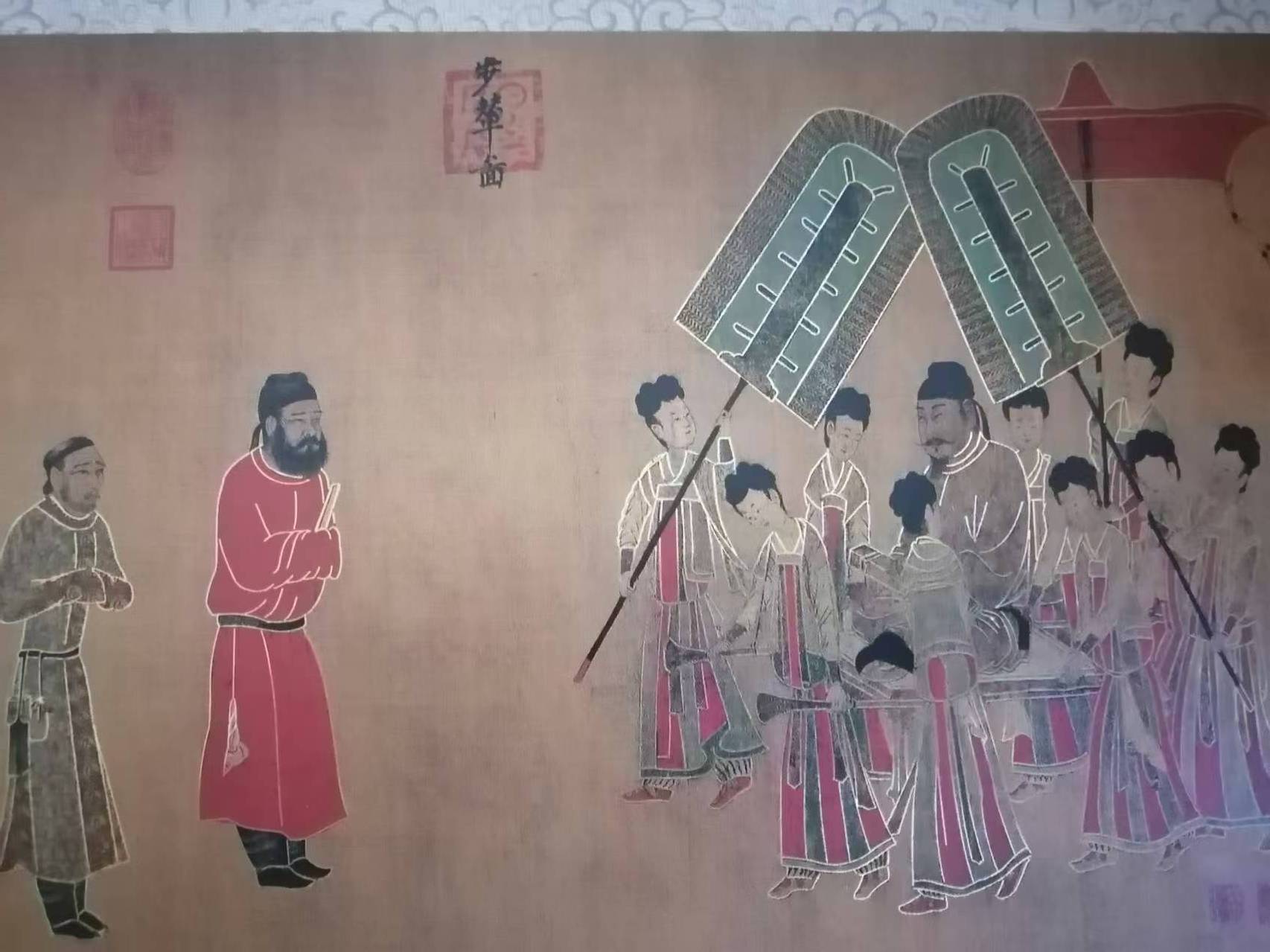Since when did ancient monks stop eating meat? Below, the editor of the History Encyclopedia will bring you a detailed interpretation. Let’s continue reading~
Buddhism emphasizes the principle of “compassion” and prohibits killing. It seems natural not to eat meat. But at the beginning, Buddhists were allowed to eat meat. This can also be understood: ancient productivity was low, and under normal circumstances, there was not enough food to eat. Monks who rely on the generosity of donors for food cannot be picky, they can only eat whatever they have.
Although meat can be eaten, it goes against the original intention of Buddhism to protect life. So Hinayana Buddhism also has flexible regulations, not all meat can be eaten, only the “Three Pure Meals” can be eaten. These three types of clean meat refer to: firstly, invisible killing, which means that one has not personally witnessed an animal being killed; 2、 Do not hear the killing with your ears, that is, do not hear the animal being killed with your own ears; Thirdly, animals are not killed because of themselves.
Under the conditions at that time, eating clean meat was a good alternative. Until the Tang Dynasty, the sixth patriarch of Zen Buddhism, Huineng, was chased by his fellow disciples and could only blend in with the hunter’s team for more than ten years. Hunters, of course, are not vegetarians. Their daily diet consists of rare mountain delicacies and wild game. Eating meat is a taboo, if you don’t eat it, you will starve to death. Do you want to eat or not? This is a problem for Huineng. Huineng, as a master of a generation, came up with the solution of simply adding vegetables into the pot of boiling meat. And he comforted himself by saying, ‘I only eat meat on the side of the dish.’ It can be imagined that this self deceiving behavior was once laughed at by hunters as a fool.
The basic precepts of Buddhism are the Five or Eight Precepts, with the first being the prohibition of killing. There is a famous saying in modern times, ‘Without buying and selling, there is no killing.’ If monks are allowed to eat meat, even if it is pure meat, it is difficult to say whether the animal being eaten was killed because of it. From this perspective, eating meat at the root is against the rules. In addition, once one is able to eat meat, it inevitably arouses the appetite of some monks who are not determined in their cultivation. After all, the vast majority of monks cannot reach the level of consciousness of Jigong Living Buddha, and cannot achieve the goal of “drinking and eating meat through the intestines, leaving the Buddha’s heart behind.” Only by prohibiting monks from eating meat can the problem be solved fundamentally.
Since there is no explicit prohibition of eating meat in Buddhist scriptures, only influential figures can solve this problem. The problem of “eating bamboo” was only solved after Buddhism was introduced to China for nearly 500 years. This person is the famous Buddhist slave emperor in history – Emperor Wu of Liang, Xiao Yan.
Emperor Wu of Liang had a profound knowledge of Confucianism and believed in Taoism when he was young. He had a very good relationship with Tao Hongjing, the founder of the Shangqing School of Taoism. After ascending to the throne, he also wanted to invite Tao Hongjing to become the prime minister. This request was rejected by Tao Hongjing. But whenever there was a major event in the court, Emperor Wu of Liang would send people to Maoshan to seek Tao Hongjing’s opinion. But Emperor Wu of Liang, who became emperor, had already undergone a transformation. Although he still believed that Confucianism, Buddhism, and Taoism were consistent, Emperor Wu of Liang converted to Buddhism in terms of religion. Believing that only Buddhism is the ‘right path’, while Confucianism and Taoism are both ‘evil paths’.
Emperor Wu of Liang, who converted to Buddhism, not only spared no effort in promoting Buddhism, but also set an example in upholding precepts. This earthly emperor is hardly feminine. Not only did he not eat meat himself, but he also ordered all monks in the world not to eat bamboo. The tradition of Chinese monks not eating meat officially began to take shape during the reign of Emperor Wu of Liang.
Emperor Wu of Liang stipulated that monks and nuns should not only abstain from alcohol, but also not eat any meat. Meat from animals, including those that have died on their own, cannot be eaten. If eaten, it will be dealt with according to the laws of the country and monks. Not only did Emperor Wu of Liang impose strict control through legal means, but he also linked the fasting of meat and fish with Buddhist teachings. Emperor Wu of Liang said that eating meat will result in suffering, which is combined with the Buddhist teachings of good and evil karma, the cycle of life and death, and even the theory of becoming a Buddha.
Under the promotion of Emperor Wu of Liang, who employed both soft and hard methods, abstaining from eating meat and seafood became a tradition among Chinese monks. Not drinking alcohol and eating meat is of great benefit to the reputation of monks and nuns among believers, which is very advantageous for the development of Buddhism. Under the promotion of Emperor Wu of Liang, Buddhism achieved significant development in the Southern Dynasties. The Tang Dynasty poet Du Mu wrote a famous poem: “In the 480 temples of the Southern Dynasties, how many towers and platforms are shrouded in smoke and rain?” How many merits of Emperor Wu of Liang are there in this?



